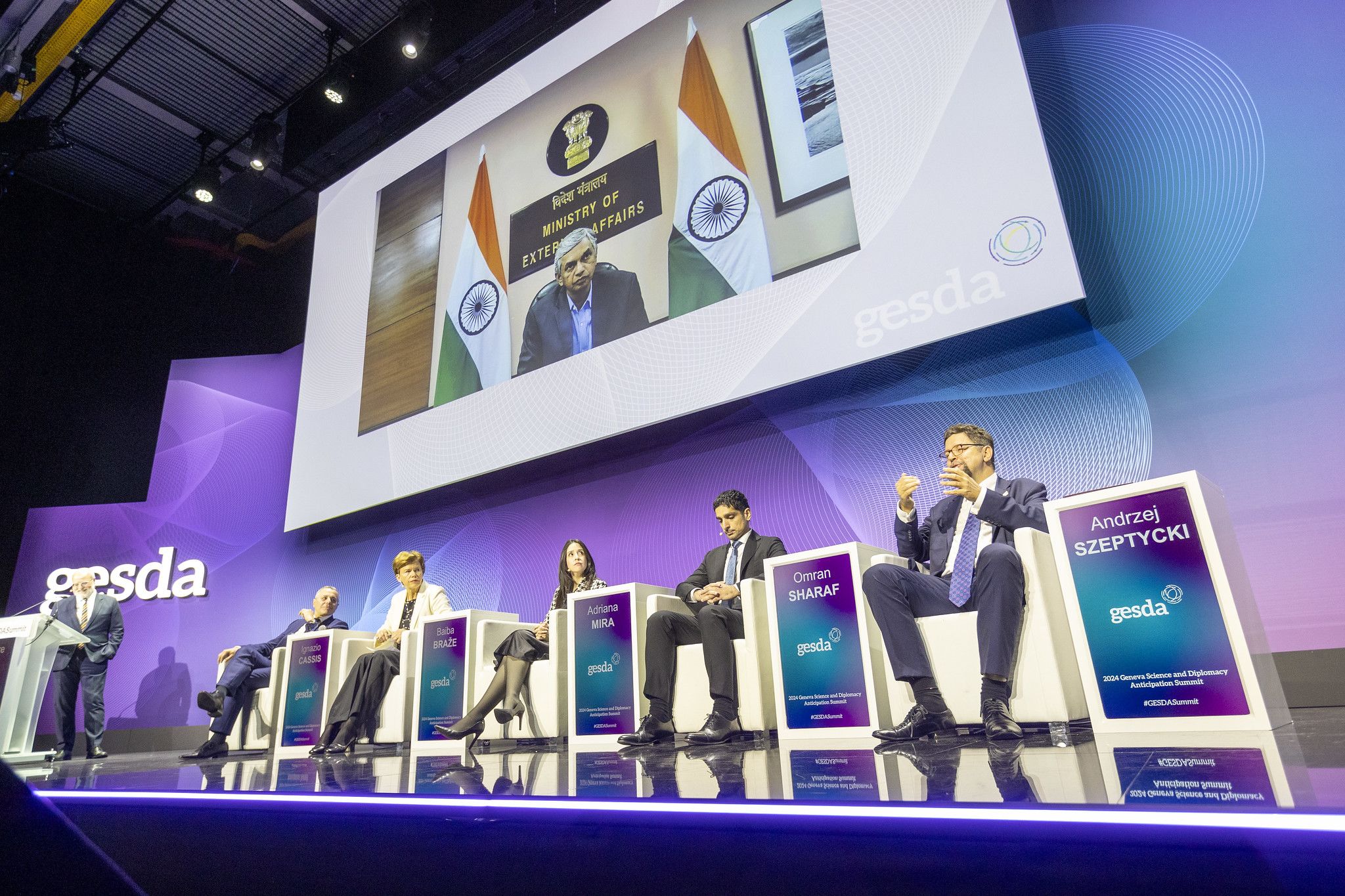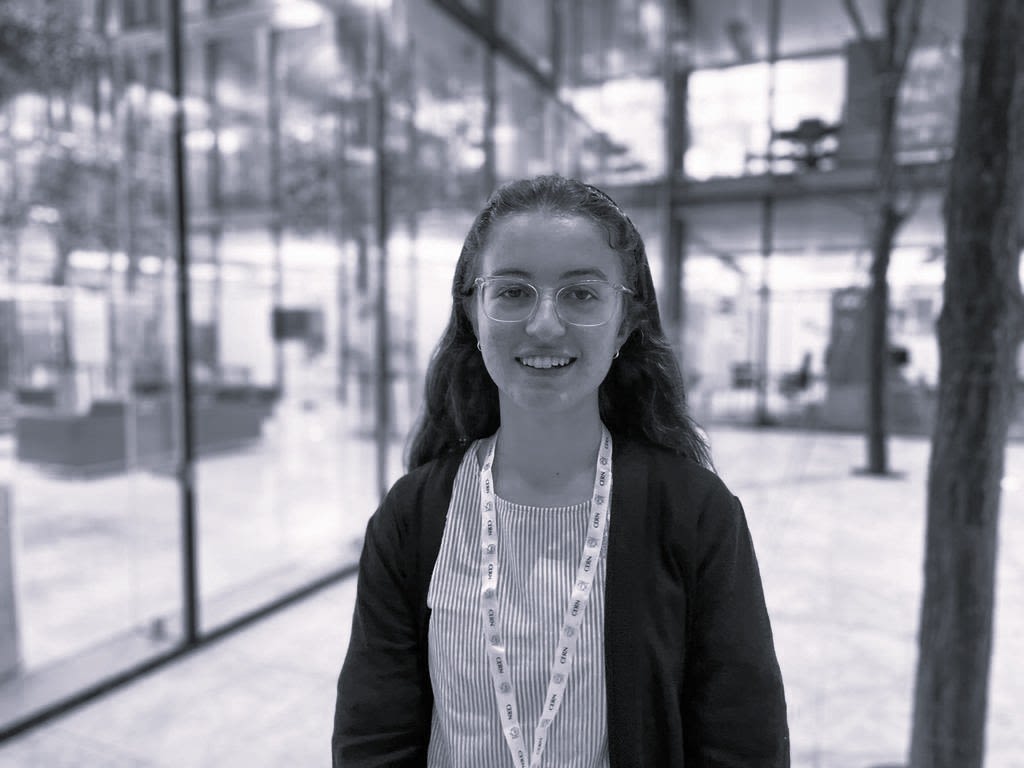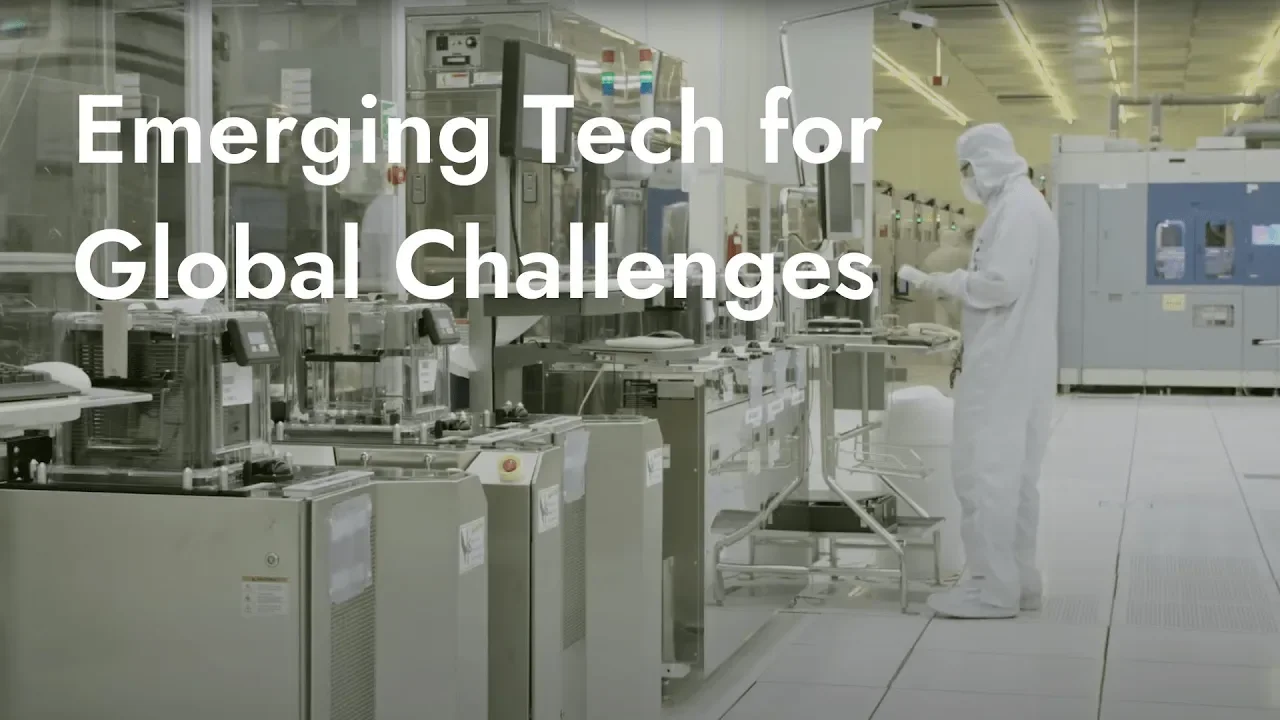Ideas from the Speakers
Opening the high-level political segment of the conference, the first speaker described GESDA’s role as an anticipator. He noted that the pace of technological progress is now outstripping society’s ability to make collective decisions, creating divides and increasing risks. For this reason, it is crucial to prevent and manage conflicts that could arise from emerging technologies, highlighting Switzerland’s intention to use its tenure on the UN Security Council to address new forms of warfare. He also voiced concern about the growing influence of technology giants. Summarizing the spirit of the Summit, he stressed that it is important to be ready for the future rather than chase after it, and to foster exchange between the empirical world of science and the opinion-driven sphere of politics.
A central part of the discussion focused on how governments can be encouraged to adopt policies that strengthen science literacy. One speaker emphasized the need to make science accessible, attractive, understandable, and trustworthy. This was reinforced by another speaker, who highlighted the importance of building trust, not only in data but also between nations. Achieving this requires leadership that actively brings communities together, breaking down silos and creating opportunities for scientists to engage directly with the public. Another speaker stressed the role of lifelong learning in shaping public understanding and opinion, pointing to the importance of public access through community centers and citing open universities in Poland as a model.
Another key point was the need to explain the importance of science to political leaders. One speaker pointed out that this requires shifting the narrative to portray the values and achievements of scientific development through storytelling, a tool that can resonate with local communities. Building on this, another speaker argued that to foster engagement, investment, and wider adoption, scientific solutions must demonstrate their practical value in addressing everyday challenges, for example related to vaccinations and agriculture.
At the same time, the speakers warned that technological achievements may not deliver the intended benefits without the right policies in place. One speaker illustrated this through the contrast between using the same technology for advancing health and for enabling warfare. They also cautioned that populist movements often exploit technological developments to erode trust in science. To counter this, one speaker called for more proactive measures, such as investigating emerging technologies like artificial intelligence and their sources, carefully managing the spread of disinformation on social media, and helping the public to better understand science and identify credible sources. In addition, policies should be firmly grounded in scientific evidence. At the same time, another speaker stressed that academic freedom must be safeguarded, explaining that scholars should not be controlled but rather supported and empowered, while ensuring their work is not misused.
In parallel, the discussion highlighted that adequate finance is essential. One speaker suggested that given the growing pressure on government budgets, pooling resources, such as combining science and defense funding to address both research and current needs, could help reduce the investment gap.
The representatives from El Salvador and India highlighted the value of investing in technology within a developing context. The speaker from El Salvador explained that the country’s culture of peace cannot be sustained without creating opportunity, and that technology and innovation are central to providing it. She emphasized that a proper plan for cooperation between government, academia, and the private sector is an essential prerequisite. Similarly, India views investment in technology as part of multidimensional progress, balancing primary and tertiary education, building a strong foundation for an emerging technology sector, and developing robust digital public infrastructure that enables millions to participate in the formal economy.
Another key theme raised by the speakers was on the democratization of science and the values it can bring. India was cited as an example, where technology has been used in educational outreach by offering content in regional languages, providing open-source online resources, and expanding access to tertiary education as a pathway to social mobility. Speakers agreed that in both developing and developed contexts, the greater representation of women in science is essential and beneficial. One speaker acknowledged that diplomacy does not always produce immediate action but stressed that it remains an important tool for making science more accessible to developing countries and ensuring they are not left behind in the global race for scientific progress. Another speaker agreed, calling for a stronger understanding of the global commons so that the benefits of science can be shared by all.
The speakers called for an end to the growing politicization and weaponization of science. One noted how the UAE has positioned itself as a mediator and hub that works with both East and West, a role that has accelerated its progress in areas such as space exploration and vaccine development. From this perspective, science should not be viewed as a competition but as a field of collaboration. Building an integrated international science and technology community would both accelerate innovation and ensure it is shared more equitably. He stressed that this model should be replicated to foster alignment and reduce polarization. Another speaker reinforced this point, urging major powers not to treat connectivity science as a geopolitical weapon but rather as a tool for collective progress and development. As a practical step, one speaker suggested that venues such as the UN Security Council could be used to host discussions that foster collaboration.














